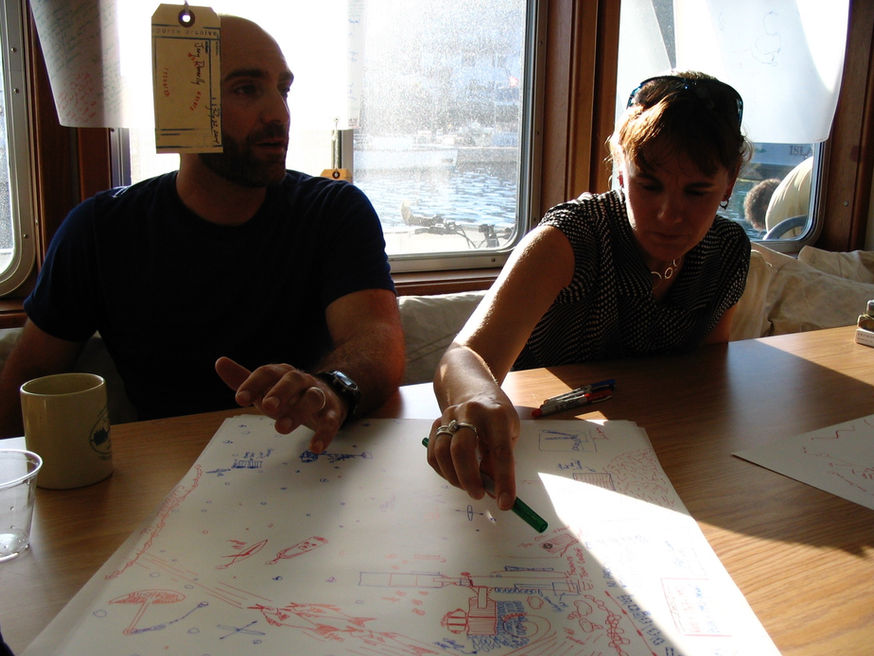WORKING WATERS
In 2005 Spurse was asked by Coastal Enterprises Incorporated to assist in developing a way for the public to re-imagine the waterfronts of Maine. Working waterfronts are being replaced by housing and tourism and public access is disappearing. CEI asked: how could the working waterfronts be supported by public art programming? Spurse proposed to work directly with affected communities to discover vernacular solutions that were already developing and to create a system to share these techniques. This led to an interview process and, with maps, diagrams and notes, Spurse traveled the coast of Maine via a converted fishing boat to meet with communities and share solutions. The second phase of this project was an exhibition at the Maine State House to support the passage of legislation in aid of the working coast.
Working Waters began by interviewing people who worked on the coast of Maine: fishermen, lobstermen, clammers, oyster and mussel farmers, and their various supporting professions. Spurse recorded oral histories, and produced maps and diagrams directly with them and then traveled the coast to further share our collective findings, catalyze solutions and act as a traveling exhibition. A final show of the work was developed for the Maine State House and the spurse archive of maps, diagrams, and interviews is available for consultation by the public.
Working Waters developed into two main exhibitions — one traveling the coast via converted fishing boat and the other at the Maine State House. Spurse conducted a number of workshops and lectures around the project in order to develop and encourage the idea of utilzing vernacular histories to catalyze new modes of dwelling. The archives generated became part of a spurse exhibit on rethinking sustainability and another on new drawing/diagramming logics. Interviews were broadcast on NPR and oral histories from Working Waters have assisted various projects that involve contemporary histories of the coast of Maine. Spurse has written a number of essays on this project.












